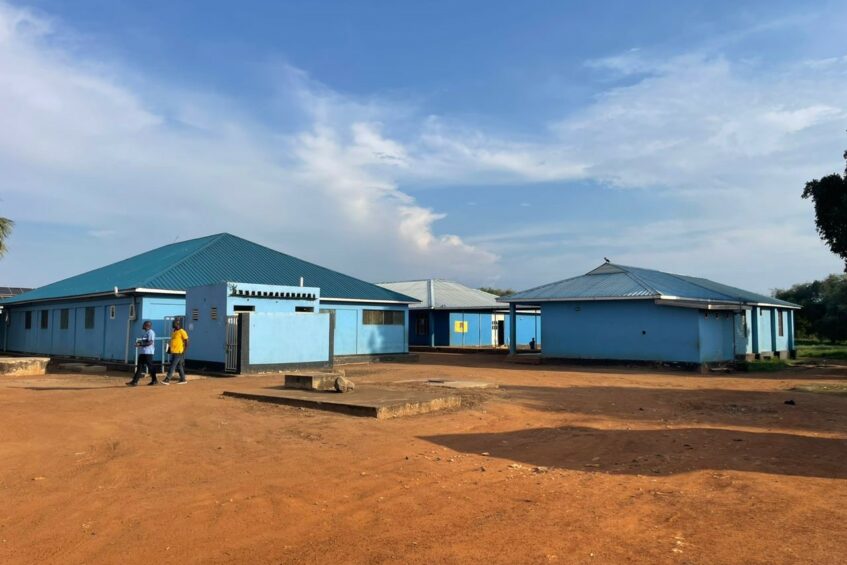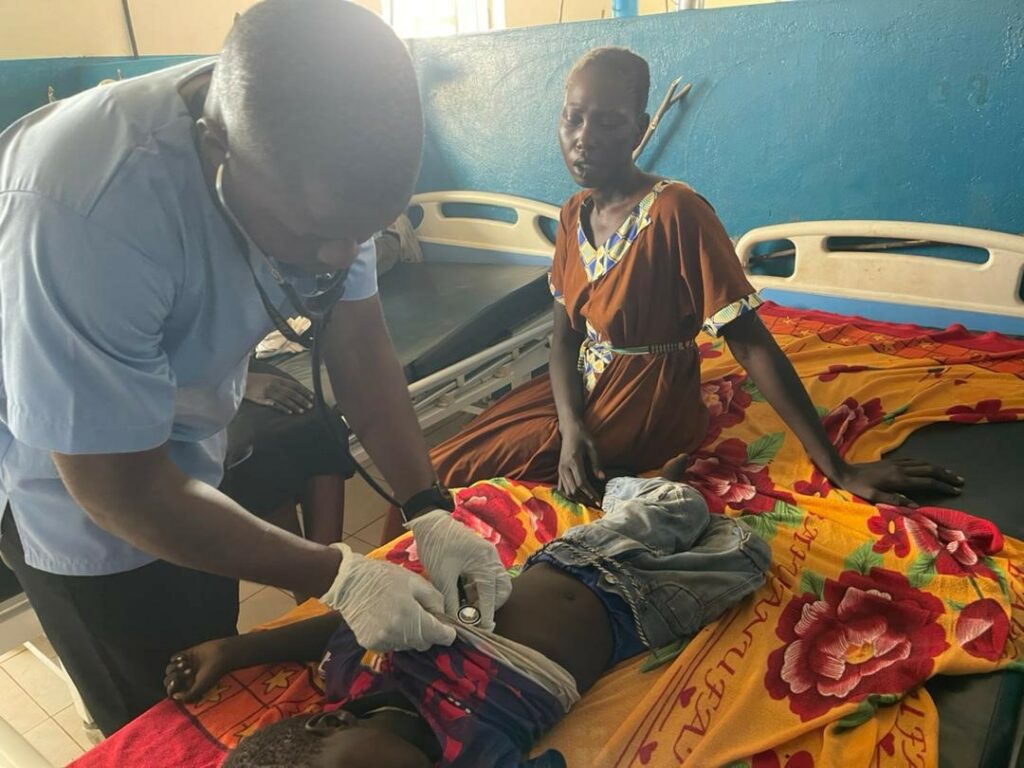
UNICEF-funded Maban Hospital in Upper Nile State. (Baria Johnson)
Bunj Hospital in Maban County of Upper Nile State has recruited 73 health workers and procured medical equipment through a UNICEF and World Bank-supported health project.
The hospital with a capacity of 120 beds also received pharmaceutical supplies and other medical supplies for its smooth running through the health project.
The facility provides secondary Health Care Services including deliveries, Blood Transfusion Services, TB and HIV Unit, Stabilization Centre among Others.
Bunj Hospital Health Manager Dr. Winston Wagwe said the funding from UNICEF, through the World Bank, has helped in the daily running of the hospital including paying incentives of the staff.
“The way that UNICEF has supported the facility is through funding, and one of the main pillars of the health system is the health care workers,” Wagwe said.
“Through the UNICEF funding, we have been able to recruit workers for the Hospital and this include medical officers, gynecologist, eight nurses, seven midwives, nurse assistant, the management and including supporting staffs.”
He also added that the hospital managed to repair and maintain necessary equipment in the facility.
Since the outbreak of the Sudan war in April 2023, South Sudan’s northern border has been overwhelmed with returnees and refugees – creating a situation of overcrowding, poor sanitation and outbreaks of diseases.
Dr. Wagwe pointed out that the only hospital in Maban had seen rising cases of malaria from June to November, mainly among the host communities.
“Since the month of July up to now 70-75% of the cases in the outpatient department have been malaria, most of the cases we have dealing with here have been from the host communities.”
“The big challenge we have had especially with malaria is frequent stock out of anti-Malarias. Since the month of August, September and October we have been receiving supplies from UNICEF, but the demand has been very high compared to the supplier.”
Maban County Surveillance Officer Abazar Owdy said the area faced a challenge in the health sector, mainly in malaria drug shortage, before the Health Program Funded intervention funded by UNICEF.
“The challenges we faced in the county before the intervention of UNICEF was that the population increased due to the Influx of Refugees and Returnees which caused shortage in Medical supplies,” Owdy said.
“The population has increased in a month. About four hundred individuals can arrive in a day which caused a challenge, but last month, we conducted a meeting with the implementing Partner on ground and after one week we received 25 boxes of Malaria Medicine which was immediately distributed to the centers.”
Angelina Philip nurses her 5-year-old son admitted at Bunj Hospital with Malaria and Anemia.
She explains her child situation and how he is receiving treatment at the Hospital.
“I brought my son on Saturday because he was sick and now, he is receiving treatment here at the hospital, the doctors said he has Malaria and Anemia.”

For his part, Relief International Health Coordinator Richard Wani said the health program implemented in that area has reduced maternal and child morality which was in the raise in the County.
“In fact, the impact of the health programing in both the refugees and host communities have reduced the maternal and infant mortality rate in this county which was very high.”
“I think without the health programming we would have registered a lot of Mothers and Children dying due to Communicable and non-communicable diseases.”
The health project supported by UNICEF through the World Bank with Ministry of Health and Relief International as partners on ground is Premised on strengthening the response to Covid 19 while consolidating health services delivery for Refugees and Host communities.
The first phase of the Emergency Response and Health Systems Preparedness Project of $51.5 million commenced in June 2021 and was due to end in July 2023.
However, the project life was extended to June 2024, with an additional funding of $200 million and included Unity State in its geographical scope.
The Project previously covered 24 counties, with 13 in Upper Nile State, 9 in Jonglei and 2 in Greater Pibor Administrative Area. These entail 191 health facilities included 8 hospitals, 57 PHCC, and 126 PHCUs.
Support Eye Radio, the first independent radio broadcaster of news, information & entertainment in South Sudan.
Make a monthly or a one off contribution.
Copyright 2024. All rights reserved. Eye Radio is a product of Eye Media Limited.